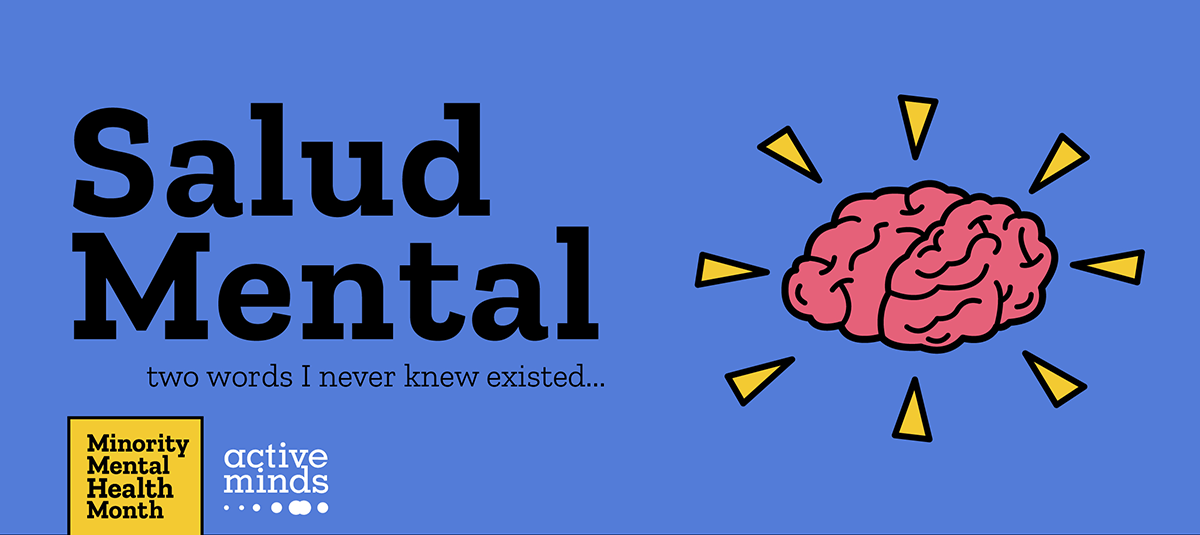I remember when I saw a mental health pamphlet in Spanish at an Active Minds Conference in California. It was so exciting, fascinating and surprising to me. Yes I wrote that right… a pamphlet! That was the first time I ever saw anything advocating for mental health in Spanish.
I am a first generation Mexican-American and in my family, mental health was never talked about or even existed; unfortunately, there is a thick layer of cultural stigma surrounding mental illness. Mental illness was not called “enfermedad mental” it was referred to as “nervios” (nerves). The Latinx population usually describes this with symptoms of headaches, sleep problems, nervousness, easy tearfulness, etc. and it can be complicated because these symptoms can also be a sign for depression. What is more, is that I’ve been speaking Spanish at home since I was in preschool and it’s hard to believe that I just recently learned how to say mental health in Spanish: “salud mental.” Two words that opened up my eyes to a conversation I could have with my family.
So why am I sharing this? Because July is Minority Mental Health Month, a month dedicated to creating awareness to the unique struggles that underrepresented groups face in regard to mental illness. Latinxs are the largest ethnic minority group in the United States and still only 1 in 10 Latinx individuals who have a mental illness use mental health services from a general health care provider and only 1 in 20 receive services from a psychologist.
Why is this the case? Below are some barriers according to the American Psychiatric Association:
Lack of insurance or inadequate insurance
- 21.1% of Hispanics are uninsured, compared with 7.5% of White non-Hispanic Americans.
Lack of knowledge/awareness about mental health problems and services available
- As mentioned Latinx families usually do not talk about mental health challenges, and most often do not know where to get help. This lack of knowledge increases stigma and leads into the next bullet point.
Cultural stigma associated with mental illness
- Latinx individuals may not seek treatment for fear of being labeled as “locos” (crazy). 1 in 5 people is affected by mental illness, so most likely we have a mental illness or know someone who does. Don’t let fear of what others may think prevent you or a loved one from getting better.
Lack of culturally tailored services and culturally competent mental health professionals
- The American Psychological Association noted that while 1 in 5 Americans identifies as Hispanic, only 1% of psychologists identified themselves as Hispanic.
Additionally, many older Latinx individuals have to deal with acculturation and sometimes traditional beliefs and values are often at odds with the new culture. Hispanic youth have also been found to be at risk for higher levels of emotional distress because of the pressures to rapidly adopt the values of their new culture while they suffer from inequality, poverty and discrimination.
Furthermore, the contentious U.S. political climate can activate feelings of anxiety, fear, and toxic stress among some Latinx individuals. My heart truly goes out to the families who have been separated and needlessly traumatized. It should go without saying that mental illness does not discriminate on age, ethnicity, socioeconomic status, gender, etc. However, it is important to highlight the unique and challenging barriers that Latinx individuals sometimes face when referring to mental health. All in all, please be knowledgeable of cultures other than your own and figure out some ways you can help in your community.




